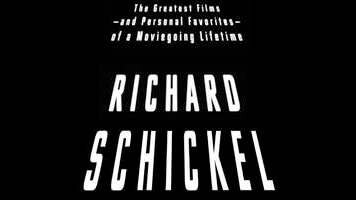In Keepers, a film critic trolls movie buffs

Richard Schickel, the longtime film critic for Time magazine, knows what a huge topic cinema is. He’s written more than two dozen books about the industry’s most important artists and eras, and has been involved with another two dozen film-related documentaries and television productions. What he’s done with Keepers, a hugely disappointing work, is to reduce that career into a 288-page volume that scarcely even offers sketches about the topic he knows so much about.
As the title implies, Keepers is something of a cinematic memoir, focusing on “the greatest films—and personal favorites—of a moviegoing lifetime.” The book is essentially a history of Hollywood—with rare and brief excursions to the big names of world cinema, with no discussion of documentaries or shorts—filtered through the names and titles that mean the most to him. This is a huge amount of ground to cover, and to do it he trades depth for breadth. No one with even the slightest amount of film literacy will learn much, and if by chance someone who knows absolutely nothing about film picks it up, there’s not enough context to make the opinions meaningful.
This isn’t a matter of what films he does and doesn’t “keep.” A critic should feel free to slaughter sacred cows, but needs his reasons to back it up. The Best Years Of Our Lives is “close to travesty,” he claims, without elaboration. It’s A Wonderful Life is not “even a very good movie.” Why? He can’t decide if it “is brilliant or far less. It simply is, for better or worse,” whatever that means. Casablanca is “the perfect bad movie”? By this point Casablanca is so revered that a take-down would be more interesting than another ode to it, but when all he offers is that “lots of people have noted that it is full of nonsense,” he’s not saying anything.
The book is just plain sloppy. Not only are there basic factual errors—Schickel claims Clint Eastwood didn’t win the best director Oscar for Unforgiven, which he did, and implies the epilogue of Schindler’s List is all black and white, which it isn’t—but it’s structured so he can make feeble arguments. Schickel dismisses Orson Welles as a “two-movie talent” (Citizen Kane and The Magnificent Ambersons), but the Welles chapter doesn’t mention Touch Of Evil, which is spoken of favorably in a later chapter on crime films. The only reason to not consider Touch Of Evil in the context of Welles’ career is to give Schickel his put-down. (The chapter also doesn’t mention The Trial, The Lady From Shanghai, or F For Fake, to give you an idea of how in-depth it goes. It does mock Welles’ obesity.)
Here’s how little insight the expert gives: Luis Buñuel, whom he agrees is “one of the great directors,” gets a chapter that’s three paragraphs long; Werner Herzog’s is four. Schickel writes, “There is no actor’s filmography to compare with [Cary] Grant’s,” but don’t tell Humphrey Bogart, who had “as great a run of pictures as anyone ever had.”
Some of his points, or what passes for points, are simply bizarre. He describes Frank Capra as “a half-forgotten director slipping down history’s page,” but then says there’s no need to describe It’s A Wonderful Life because it’s so well known. (That’s a trick he uses a lot to get out of writing anything but the most cursory mention of a title.) He claims Stanley Kubrick “didn’t really care” about anything except visuals (a stretch, requiring one forget about the dialogue of Dr. Strangelove or the literary qualities of Lolita). Because of this, he argues, Kubrick “drives a lot of critics nuts.” He adds, “Let’s face it: Most of the people who review and theorize about movies are literary types. They are there for the talk. That’s why they remain suspicious of Kubrick.” What the fuck? Just try and find a critic who wouldn’t put Kubrick in the upper echelon of directors, or who doesn’t care about visuals. That’s before you get to the real face-palms, like Schickel wondering why Les Enfants Du Paradis, a French film, “is almost never referred to by its completely serviceable English title” (never mind that it frequently is), or his noting that Yankee Doodle Dandy was filmed “in black and white, of all things,” when everyone knows color films were supremely rare in 1942. (He also says that Fred Astaire wouldn’t have been sentimental enough to star in Dandy—unlike noted softie James Cagney?)
The book is in dire need of citations, given how often Schickel make claims that aren’t backed up by anything. He says critical opinion has turned against Capra and argues that the girl in the red coat in Schindler’s List is considered “a blot on [Steven] Spielberg’s record … the most controversial shot” in his career. Who considers this? When he says Frances McDormand “works more or less exclusively for the [Coen] brothers,” what is he talking about?
It’s hard to make a film buff dislike a book about celebrating movies, but Schickel doesn’t even tout interesting movies. So he likes The Godfather, Pinocchio, E.T., and the Coen brothers. Whoopee. He advocates for a few obscure titles—André De Toth’s Crime Wave, Vincent Sherman’s Mr. Skeffington—but they get the same minimal treatment as everything else.
He does get one thing right: While wrapping up he mentions how much he enjoyed flipping through 1001 Movies You Must See Before You Die. That book is a lot of fun to flip through, and compared to Keepers, it offers a tremendous amount of information and context. Here it is. Get cracking.